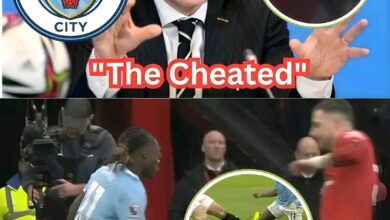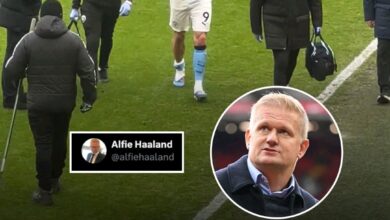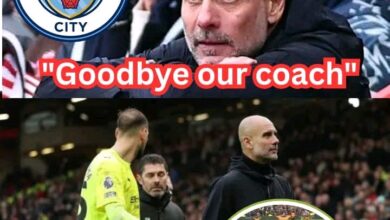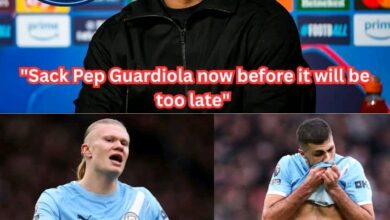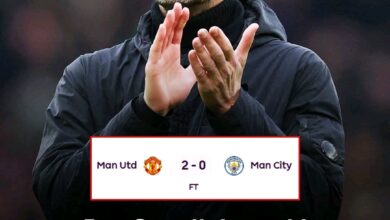Jack Grealish responds to troll who says he’s been bad for Man City after latest brutal Pep Guardiola decision
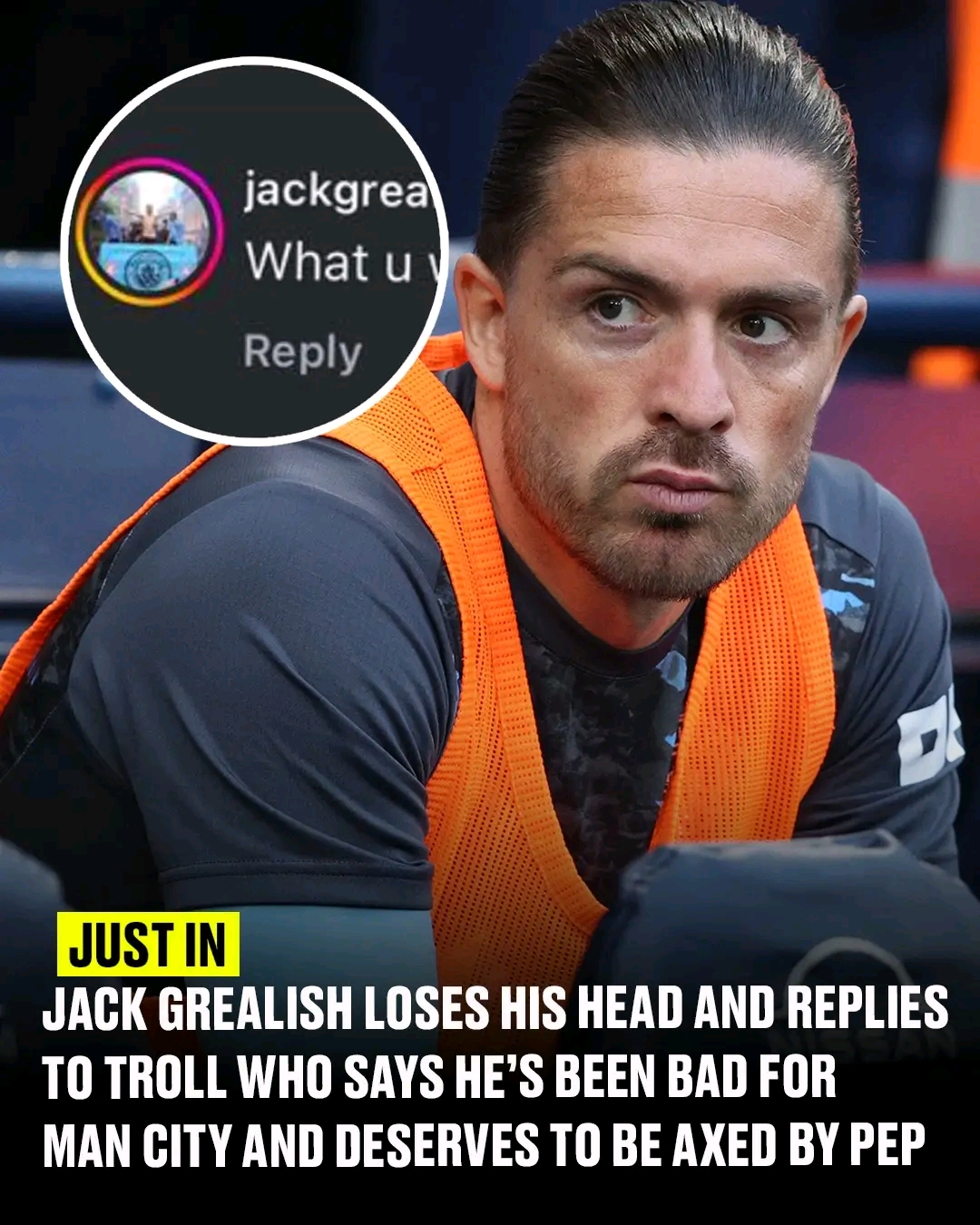
The world of football is rarely short of drama, and the latest chapter involves Manchester City’s Jack Grealish finding himself at the center of intense scrutiny regarding his future at the Etihad Stadium. The English winger, who made headlines with his record-breaking £100 million transfer from Aston Villa in 2021, has recently found himself defending his performances against online critics while facing the harsh reality of potentially being excluded from Pep Guardiola’s plans for the upcoming FIFA Club World Cup.
When Jack Grealish completed his move to Manchester City in the summer of 2021, expectations were astronomical. The transfer fee of £100 million made him the most expensive British player in history, a price tag that inevitably brought with it immense pressure and scrutiny. Four years later, the 29-year-old finds himself in a precarious position, struggling to justify that hefty investment in the eyes of critics and, seemingly, his own manager.
The statistics tell a story that many would consider underwhelming for a player of Grealish’s caliber and price tag. Across 157 appearances in all competitions for Manchester City, the winger has managed just 17 goals. While goals aren’t everything for a player in his position, the numbers have become a stick with which critics continue to beat him, particularly during periods when his playing time has been limited.
However, it’s important to contextualize these figures within the broader scope of Grealish’s contributions to the team. His role in Manchester City’s historic treble-winning campaign cannot be understated. During that remarkable season, Grealish provided crucial moments of magic, offering the kind of unpredictability and flair that helped City navigate through some of their most challenging fixtures. His ability to retain possession, draw fouls in dangerous areas, and create space for teammates has always been his primary value proposition, rather than simply being a prolific goalscorer.
The latest controversy surrounding Grealish centers on reports suggesting he will be excluded from Manchester City’s squad for the upcoming FIFA Club World Cup. This development, first reported by Matt Law of The Telegraph, has sent shockwaves through the football community and raised serious questions about the player’s long-term future at the club.
The Club World Cup represents one of the most prestigious tournaments in modern football, and exclusion from such a competition is rarely a decision taken lightly by any manager. For Grealish, this potential omission serves as perhaps the clearest indication yet that his time at Manchester City may be drawing to a close. The report suggests that the club is willing to let the England international move on after four seasons, marking what could be the end of one of the most scrutinized transfers in recent memory.
This decision, if confirmed, would represent a significant shift in Manchester City’s approach to squad management. Guardiola has always been known for his tactical flexibility and willingness to rotate his squad, but completely excluding a player of Grealish’s stature and investment from such an important tournament suggests that the relationship between player and manager may have reached an irreparable point.
Pep Guardiola’s tactical philosophy has continued to evolve throughout his tenure at Manchester City, and this evolution has not always favored Jack Grealish’s particular skill set. The Spanish manager’s preference for players who can adapt to multiple positions and tactical systems has sometimes left the English winger on the periphery of the first-team setup.
Throughout the 2024-25 season, Grealish has found opportunities increasingly hard to come by. His appearances have been sporadic, often coming as a substitute rather than as a starter in important matches. This reduction in playing time has coincided with Manchester City’s continued success in domestic and European competitions, suggesting that Guardiola has found alternative solutions that don’t necessarily require Grealish’s unique attributes.
The tactical shift has been particularly evident in City’s approach to wide positions. Guardiola has increasingly favored players who can contribute defensively while maintaining the attacking threat that has made City so formidable. Grealish, while undoubtedly talented in possession and capable of moments of brilliance, has sometimes struggled to meet the defensive demands that modern wing play requires in Guardiola’s system.
Former Aston Villa striker Gabby Agbonlahor’s comments on talkSPORT have added fuel to the speculation surrounding Grealish’s situation. Agbonlahor suggested that Guardiola’s decisions regarding Grealish had become “personal,” particularly referencing the FA Cup final where a young debutant was brought on ahead of the experienced winger when City were chasing a goal.
“I think towards the end of the season, it felt to me like it got a bit personal,” Agbonlahor observed. “Bringing on a young kid for his debut in the FA Cup final when you’re chasing a goal, when you’ve got someone who’s had the career Jack’s had just seemed a bit odd.”
This observation touches on a broader narrative about Guardiola’s management style. The Catalan coach has never shied away from making difficult decisions, regardless of player reputations or transfer fees. His willingness to sideline established stars in favor of tactical considerations or disciplinary measures has been a hallmark of his management throughout his career.
In the modern era of football, players are subjected to constant scrutiny not just from traditional media but also from millions of fans across social media platforms. Jack Grealish has not been immune to this phenomenon, and recent criticism has prompted him to respond directly to his detractors.
The exchange that sparked significant attention occurred in the comments section of an Instagram post. When a fan wrote, “Dude jack is been bad lately and I’m not surprised Pep did that,” Grealish felt compelled to defend himself with statistical evidence of his recent contributions.
“Haha I’ve been bad lately? Scored 3 goals in my last 3 appearances over 45 mins but okie dokie love x,” was Grealish’s response, highlighting his recent goal-scoring record despite limited playing time.
This interaction reveals several important aspects of the modern footballer’s experience. First, it demonstrates the direct line of communication that now exists between players and fans, bypassing traditional media gatekeepers. Second, it shows how players are increasingly willing to defend themselves using concrete data rather than simply ignoring criticism.
Grealish’s defensive response also included another telling comment: “What u want me to do score a hatty in 20?” This rhetorical question encapsulates the frustration many players feel when their contributions are reduced to simple statistical comparisons without considering context such as playing time, tactical role, or team dynamics.
The fact that Grealish could point to scoring three goals in his last three appearances, totaling just 45 minutes of playing time, actually supports his argument that he has been productive when given opportunities. This goal-scoring rate, if extrapolated over full matches, would represent exceptional productivity for any player, regardless of position.
The situation between Grealish and Guardiola reflects broader themes in modern football regarding player-manager relationships and squad management. The days when star players were guaranteed starting positions based solely on reputation or transfer fee are increasingly rare in elite football.
Guardiola’s approach to managing Grealish exemplifies his philosophy that no player, regardless of cost or reputation, is bigger than the team or the tactical system. This approach has been consistent throughout his career, from his early days at Barcelona through to his current tenure at Manchester City.
In a recent press conference, Guardiola addressed the speculation surrounding Grealish’s future with characteristic directness: “Of course, Jack has to play. He’s an unbelievable player that has to play football every three days. It didn’t happen this season and last season either. He needs to do it, with us or another place.”
This statement reveals several key insights into Guardiola’s thinking. First, he acknowledges Grealish’s quality as a player, describing him as “unbelievable.” Second, he recognizes that regular playing time is essential for any footballer’s development and happiness. Third, he openly acknowledges that this regular playing time may need to come elsewhere if it cannot be provided at Manchester City.
Guardiola’s comments also reveal his pragmatic approach to squad management. Rather than making false promises or offering unrealistic expectations, he has been transparent about the reality of Grealish’s situation. This honesty, while potentially difficult for the player to hear, represents a mature approach to handling what could otherwise become a prolonged and disruptive situation.
The manager’s assertion that “It’s nothing personal with Jack” is particularly significant given the speculation about their relationship. Guardiola went on to emphasize his historical support for the player: “I’m the person who fought for him to come here and the person who fought for him to stay here this season. I’m the one who said I want Jack Grealish.”
The Grealish situation also highlights the complex economics of modern football transfers. When Manchester City invested £100 million in the player, they were not just purchasing his services for a single season but making a long-term investment in his potential contributions over multiple years.
However, the reality of elite football is that even substantial investments don’t guarantee success or longevity. The pressure to deliver immediate results, combined with the constantly evolving tactical demands of the modern game, means that even expensive signings can quickly find themselves surplus to requirements.
For Manchester City, the potential departure of Grealish represents both a financial consideration and a strategic decision. The club would likely need to recoup a significant portion of their initial investment, but they would also need to balance this against the tactical benefits of moving in a different direction.
The broader football market has shown that clubs are increasingly willing to accept financial losses on big-money signings if they believe it serves their long-term strategic interests. This shift represents a maturation of the transfer market, where purely financial considerations are balanced against sporting objectives.
Beyond his club situation, Grealish’s reduced playing time at Manchester City has potential implications for his England career. National team selection increasingly favors players who are regularly featuring for their clubs, and extended periods on the bench or out of squads can quickly translate to international exile.
For a player who has represented England at major tournaments and contributed to the national team’s recent successes, this represents an additional layer of pressure. The England setup under Gareth Southgate and now potentially under new management will be looking for players who are match-sharp and playing regularly at the highest level.
Grealish’s situation mirrors that of several other English players who have found themselves caught between club loyalty and the need for regular playing time to maintain their international careers. The decision of whether to stay and fight for his place at Manchester City or seek opportunities elsewhere will likely be influenced significantly by his international ambitions.
Should Grealish decide to leave Manchester City, or should the club decide his time at the Etihad has come to an end, several potential destinations could offer the regular playing time he craves. His profile as an established Premier League performer with international experience would make him attractive to numerous clubs both domestically and internationally.
A return to Aston Villa, while emotionally appealing, would represent a significant step backward in terms of competitive level and European ambitions. However, it would offer the guarantee of regular playing time and a return to familiar surroundings where he previously excelled.
Other Premier League clubs currently lacking creative spark in wide positions could represent more realistic options. Teams with European ambitions but perhaps lacking the depth of Manchester City’s squad might see Grealish as the missing piece in their tactical puzzle.
Continental options cannot be ruled out either. Several top European clubs have shown interest in Premier League talents, and Grealish’s technical ability and pace could translate well to different tactical systems and league demands.
Often overlooked in discussions about player transfers and squad decisions are the mental health implications for the individuals involved. Being excluded from major tournaments or finding playing time severely limited can have significant psychological effects on professional athletes.
Grealish’s decision to respond directly to social media criticism suggests a player who is feeling the pressure of his situation. The need to defend his recent performances and goal-scoring record indicates someone who is acutely aware of the narrative surrounding his career and feels compelled to correct perceived misconceptions.
The support systems available to modern footballers have improved significantly in recent years, with clubs investing heavily in psychological support and mental health resources. However, the unique pressures faced by high-profile, big-money signings like Grealish require specialized understanding and support.
Jack Grealish finds himself at a genuine crossroads in his career. At 29, he is entering what should be his peak years as a footballer, yet he faces the very real possibility of spending those years on the periphery of Manchester City’s squad or seeking a fresh start elsewhere.
His response to recent criticism demonstrates a player who believes in his abilities and has statistical evidence to support his claims about recent form. However, the broader context of Guardiola’s tactical evolution and the reported exclusion from the Club World Cup squad suggests that individual statistics may not be enough to secure his long-term future at the Etihad.
The coming months will likely prove decisive for Grealish’s career trajectory. Whether he can force his way back into Guardiola’s plans, or whether a move elsewhere represents the best option for all parties, remains to be seen. What is certain is that a player of his talent and experience deserves to be playing regular football at the highest level.
The football world will be watching closely to see how this situation develops. For Grealish, the challenge is clear: prove that the £100 million investment was justified, either at Manchester City or elsewhere. For City, the question is whether they can afford to let such a talented player leave, or whether their tactical evolution has simply moved beyond what Grealish can offer.
In an era where player power and social media influence have never been greater, Grealish’s willingness to defend himself publicly adds another dimension to this unfolding story. The modern footballer is no longer content to suffer in silence, and Grealish’s recent comments suggest a player determined to control his own narrative.
Whatever the outcome, this situation serves as a fascinating case study in modern football’s complex dynamics between player ambition, managerial philosophy, financial investment, and the ever-present pressure of public opinion. For Jack Grealish, the next chapter of his career promises to be as closely scrutinized as any in recent memory.








